On Matters of Interest to the King
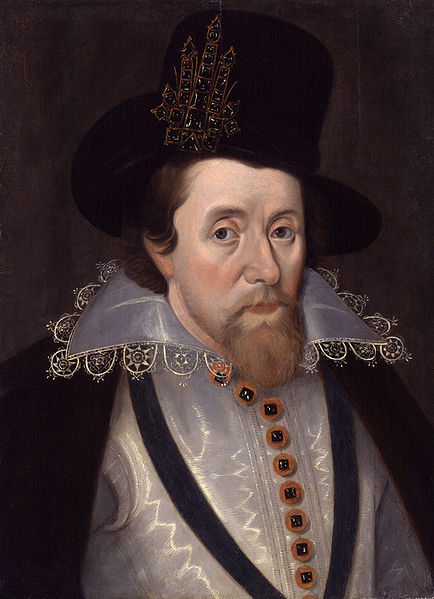 |
| James VI & I |
In 1604
James wrote A Counterblaste to Tobacco, fulminating against smoking, which
had become very popular since Ralegh first introduced it to England. James
likened tobacco smoking to Hell;
‘A custome lothsome to the
eye, hatefull to the Nose, harmefull to the braine, dangerous to the Lungs, and
in the blacke stinking fume thereof, neerest resembling the horrible Stigian
smoke of the pit that is bottomelesse.’[i]
And his
response to the argument that tobacco smoking was popular was to say;
‘Such is the force of that
natural Self-Love as we cannot be content unless we imitate everything that our
fellows do……..counterfeiting the manners of others, to our own destruction.’[ii]
James
allowed the Earl of Dorset, Lord High Treasurer, to levy a tariff of six shillings and eight pence[iii] per pound of tobacco
imported.  |
| Earl of Dorset |
James also
suggested a union between the two countries, but the fury of the English knew no
bounds. They believed that any benefits would accrue to the Scots, who had
flocked down with their king and in many instances had been well-rewarded for
so doing. James spoke in Parliament in support of his proposal; he suggested
that all Scots born after 1603 should become British and all those born before
should be naturalised.
‘It was unreasonable that a
thing that was in nature so much in effect one, should not be a unity in name.’[iv]
But the
objections overruled James’ ambitious plan, although he and Cecil were able to
unite the coinage of the two kingdoms.
Money Problems
There had
been a 50% price rise during the period of Elizabeth’s reign and James’
financial problems were aggravated by his generosity to his friends and
supporters. Cecil spent £60,000[v] on his new residence at Hatfield[vi]. Lord Suffolk[vii] built Audley End, which could house the whole court. 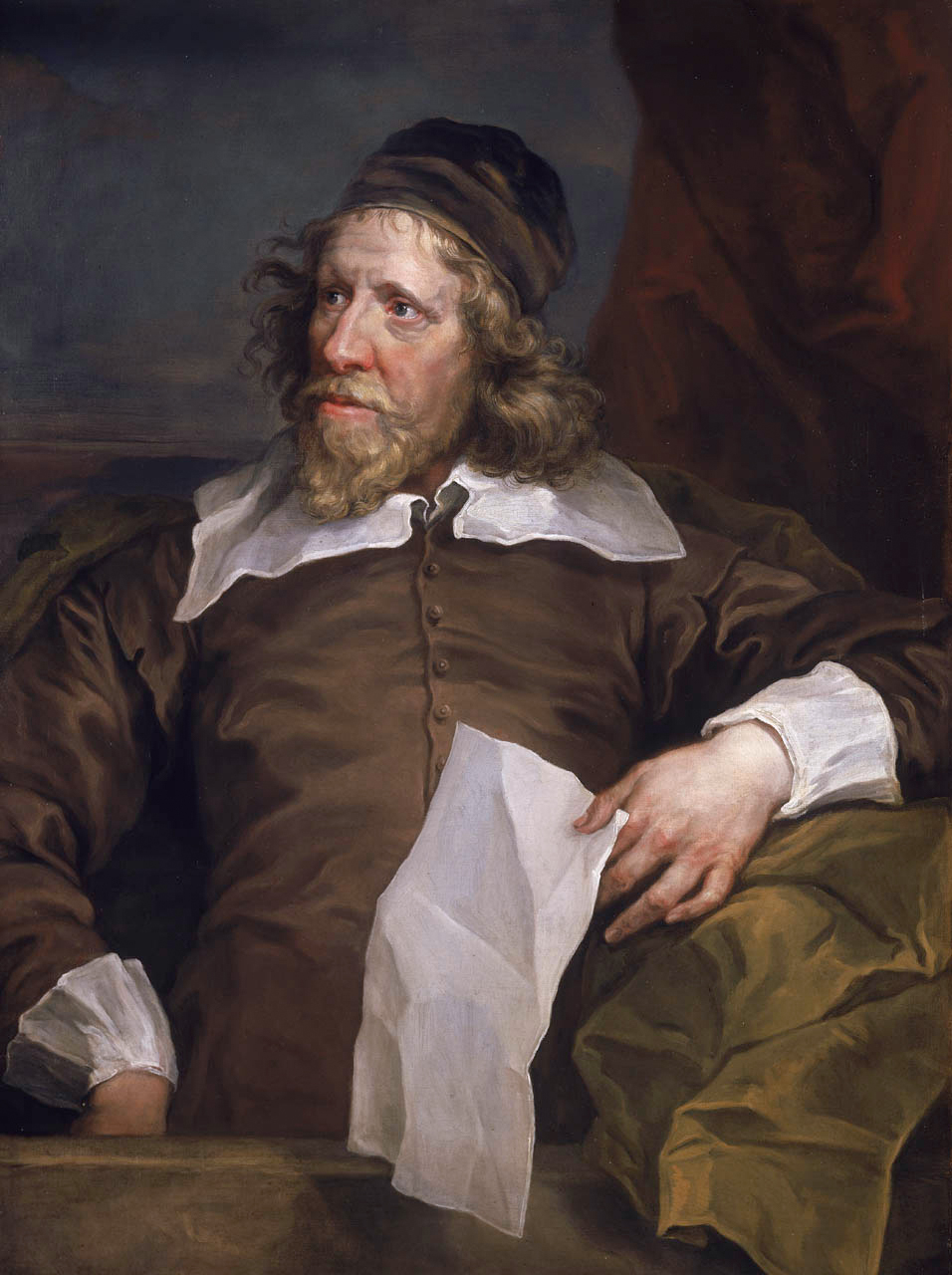 |
| Inigo Jones |
In addition James
was extravagant on his own behalf and so was his queen; Anne loved elaborate
masques and balls organised by Inigo Jones[viii] who had been recommended to the
queen by her brother Christian IV of Denmark. In the autumn of 1604 Jones was
working with Ben Jonson on The Masque of Blackness.
And as ever
Parliament was unwilling to vote monies to support the king’s extravagances.
And James was convinced that the king of England was as rich as the king of
Scotland was poor. By the time Lord Dorset died in 1608 the Crown had debts of
£600,000[ix], the result of James’
extravagant expenditure. The Crown had an income of over £350,000[x] in 1610, partly as the
result of Cecil’s endeavours, and king and parliament were unable to come to an
agreement.
The King and His Boy
James
homosexual tendencies led him to favour Robert Carr, one of those who had followed James
down from Scotland and now made Earl of Somerset. James failed to take into
consideration the sensibilities of the ruling English nobility who felt they
had a right to advise the king; the new favourites threatened that powerbase. 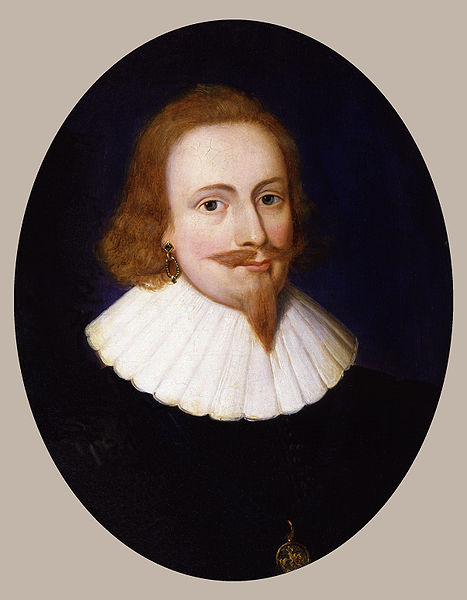 |
| Robert Carr |
Carr
attracted the king’s attention at a tournament and later when he broke his leg
and was taken to Charing Cross hospital. The king hung around the young man’s
bed and the court was not far behind; Sir Anthony Weldon wrote;
‘Lord, how the great men
flocked to see him [Carr] then, and to offer to his shrine in such abundance.’[xi]
By 1613 Carr
had his Earldom and was spending the money James gave him like water; in that
year he disposed of £90,000[xii]. He married the sister
of Lord Suffolk, Frances Howard that same year. Madly in love James taught Carr Latin. Prince Henry
disliked Carr; his father used Carr transmit instructions to Henry, including
those relating to Henry’s projected marriage. Once Henry
‘Menaced to strike [Carr]
with a tennis racket.’[xiii]
When the
couple fell out and Carr was treating James to hysterical scenes James was
bitter;
‘I shall never pardon myself
but shall carry that cross to the grave with me, for raising a man so high as
might make him presume to pierce my ears with such speeches.’[xiv]
Losing Children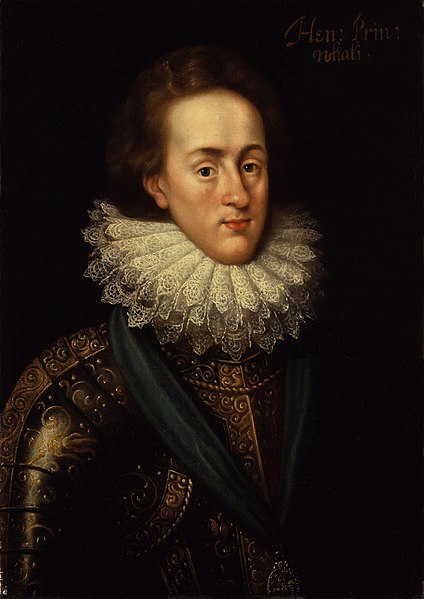 |
| Prince Henry |
The popular Prince Henry died on 6th November 1612
of typhoid fever at the age of 18. James refused to attend the funeral and the
11 year old Prince Charles was the principal mourner. Henry was in many ways
the opposite of James; he was careful with his money and intensely disliked the
swearing his father was prone to. He was also interested in ships and farming.
Henry was a loving elder brother to Charles and Elizabeth; both princes
stammered and Henry had to practise speaking.
‘’The corpse of the lamented
Prince of Wales……….was on the 7th December, interred in Westminster Abbey
with unexampled pomp and magnificence.’[xv]
Three months
later Charles effectively lost his only other surviving sibling, when his 16
year old sister Elizabeth married Frederick V, Count Palatine. As the daughter of
a Protestant king and second in line to the English throne Elizabeth had a
number of Protestant princes looking for her hand in marriage, among their
number were Gustavus Adolphus[xvi], son of the king of Sweden and Prince Maurice of Nassau[xvii].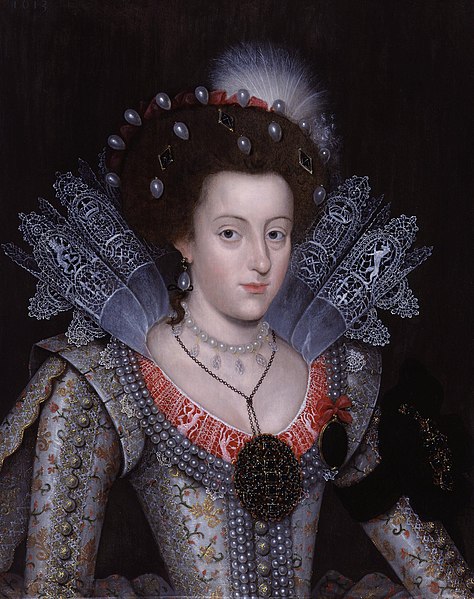 |
| Princess Elizabeth as Queen of Bohemia |
The marriage
was wildly popular with the English and took place on 14th February.
After the ceremony at the Chapel Royal at Whitehall the entertainments went on for days;
‘Amidst a succession of
luxurious entertainments, the king often betrayed weariness, and the queen
ill-humour; and whenever this occurred, she vented her spleen by addressing her
daughter by the appellation of Goody Palsgrove.’[xviii]
It was not
until the end of April that the couple left England en route to Frederick’s
home. By now James was unhappy, possibly at the vast amount of money spent on
his daughter’s wedding but more probably still grief stricken at the loss of
Henry, and he betook himself to Theobalds, while the queen went on a progress.
In Prose and Verse
Shakespeare was still active in the early
Jacobean period; writing Othello in 1604, King Lear and Macbeth in 1606, Coriolanus
in 1608 and the Tempest in 1611 among many others. He finished three plays in
1613, before dying in 1616. A number of his plays were performed at court.
Ben Jonson
was working for the king producing masques for the court’s entertainment. The Duchess of Malfi, by John Webster, was performed by the King’s Majesty’s Servants at the Globe in 1623.  |
| John Donne |
James also
patronised John Donne making him chaplain in ordinary and
later made him Dean of St Paul’s. To other writers James was less
supportive; John Selden[xix] had his history of tithes
suppressed. His pamphlet, commissioned by James, answering the Dutch claim to
the freedom of the seas was suppressed to avoid causing offence to the queen’s
brother.
James
visited both Oxford and Cambridge universities; in 1615 James
particularly enjoyed his trip to the Bodleian Library The trip was enlivened by supper at Christchurch, plays were performed at which the
king fell asleep and much wine was drunk.
Bibliography
Charles The
First – John Bowle, Weidenfeld & Nicholson 1975
The Early
Stuarts – Godfrey Davies, Oxford University Press 1987
King James –
Antonia Fraser, BCA 1974
Robert Cecil
– Alan Haynes, Peter Owen Publishers 1989
Charles I –
Christopher Hibbert, Penguin 1968
Memoirs of
Elizabeth Stuart, vol 1 – Elizabeth Benger, reprint of A & R Spottiswoode
(unknown date)
www.wikipedia.en
[ii]
King James - Fraser
[iii]
In 2011 the relative: historic standard of
living value of that income or
wealth is £64.52 economic status
value of that income or wealth is £1,752.00 economic power value of that income or wealth is £12,830.00 www.measuringworth.com
[iv]
Robert Cecil - Haynes
[v]
In 2011 the relative: historic standard of
living value of that income or
wealth is £9,521,000.00 economic status
value of that income or wealth is £318,600,000.00 economic power value of that income or wealth is £2,188,000,000.00 www.measuringworth.com
[vii]
Son of the 4th Duke of Norfolk who was executed by Elizabeth.
[ix]
In 2011 the relative: historic standard of
living value of that income or
wealth is £93,930,000.00
economic
status value of that income or
wealth is £3,274,000,000.00 economic power value
of that income or wealth is £23,000,000,000.00 www.measuringwealth.com
[x]
In 2011 the relative: historic standard of
living value of that income or
wealth is £59,580,000.00
economic
status value of that income or
wealth is £1,695,000,000.00 economic power value
of that income or wealth is £11,770,000,000.00 www.measuringworth.com
[xi]
King James – Fraser
[xii]
In 2011 the relative: historic standard of
living value of that income or
wealth is £13,660,000.00
economic
status value of that income or
wealth is £480,400,000.00economic power value
of that income or wealth is £3,285,000,000.00 www.measuringworth.com
[xiii]
Charles the First - Bowle
[xiv]
King James - Fraser
[xv] Memoirs of Elizabeth
Stuart vol 1 - Benger
[xviii]
Memoirs of Elizabeth Stuart vol 1 - Benger
[xix]
A jurist and scholar
No comments:
Post a Comment
Note: only a member of this blog may post a comment.